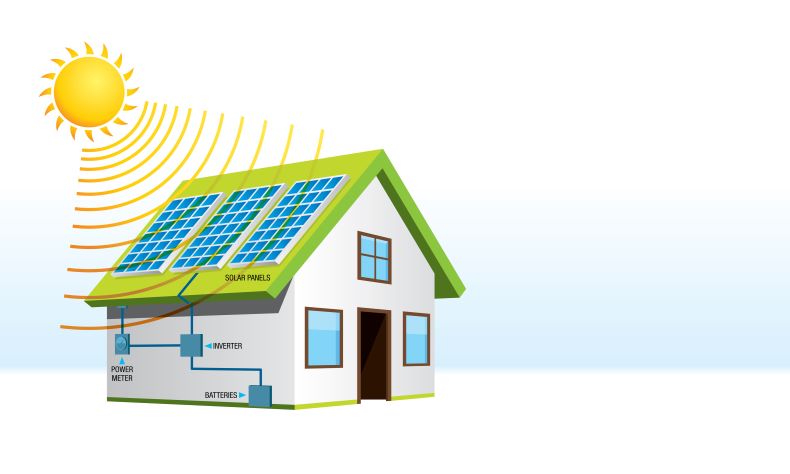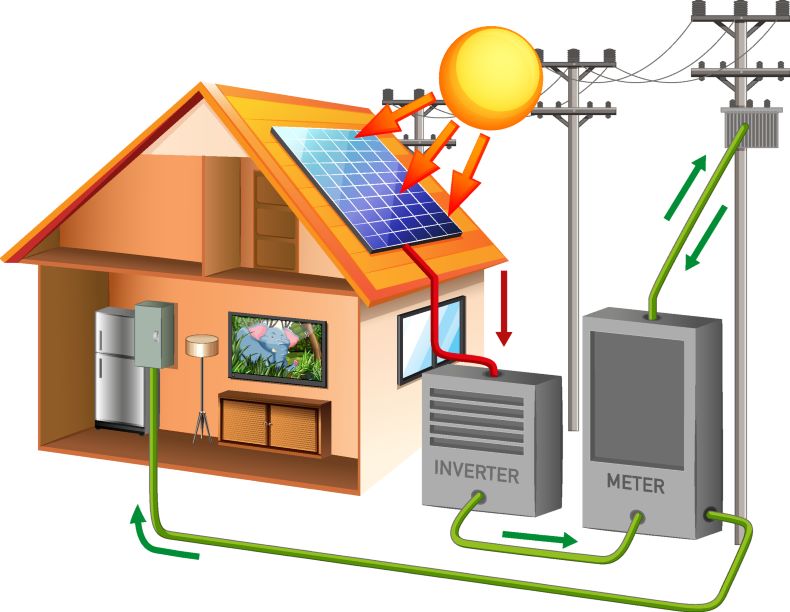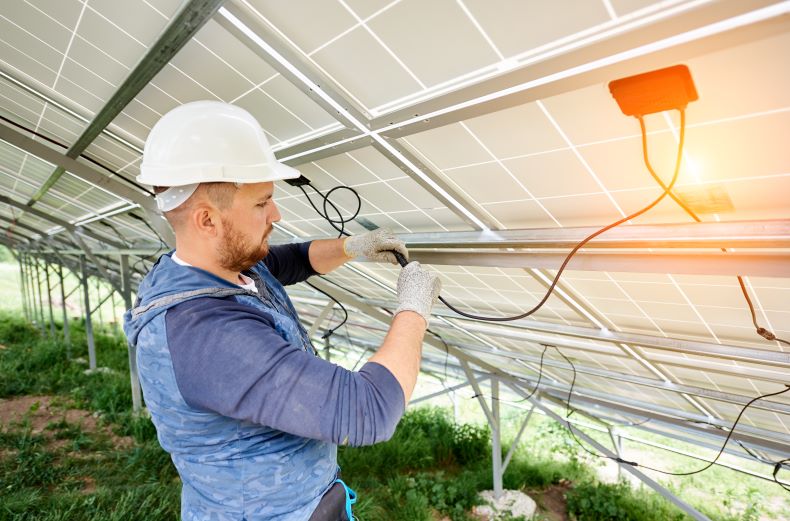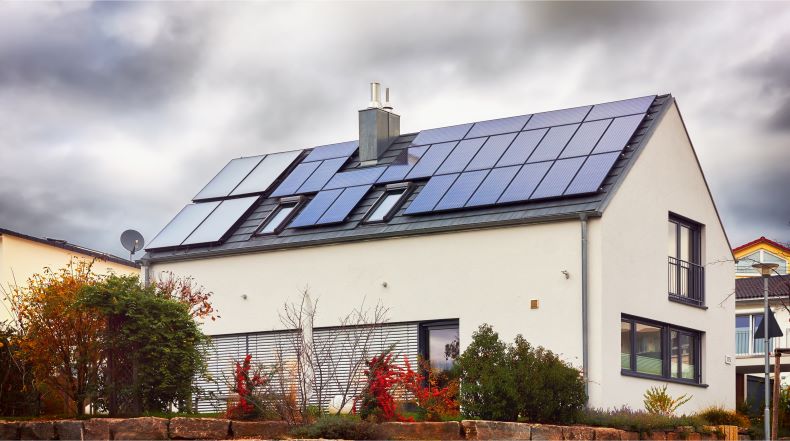When a homeowner is looking to get a solar panel installation there’s so much information that is thrown at them. From the solar panels they should get, to what sort of mount they should get for the solar panel installation, should their solar-powered system connect to their or be completely independent of the gird, to what solar installer should choose? And with all of that information comes a lot of solar energy articles that they will come across, but here at HaHaSmart we are making it easy and are compiling a list of common questions homeowners have before going solar.

How Do Solar Panels Work?
Before you make any sort of investment you are going to want to know how it works, the same goes for when you’re investing in solar panels. When the sunlight hits your solar panels, it knocks the electrons around and then guides them in the same direction on a circuit. When this happens, the electrical currents are formed. For a solar-powered system that has multiple solar panels, the flow of electrons is going to generate the direct current (DC) solar electricity. Then a solar power inverter converts the DC solar electricity to alternating current (AC) solar electricity so you will be able to use it in your home or your workplace.

Does Your Rooftop Support a Solar Panel Installation
This is perhaps one of the most important questions a homeowner can ask because not every rooftop is suitable for solar panel installation. If your roof has a lot of shade for most of the day, your solar-powered system's production may not be enough for the switch to solar energy to be worth it. Which is something that most homeowners are going to want to know before they get a solar panel installation?
If you find that your rooftop isn’t suitable there are a few options that you will have that will still let you enjoy solar energy. You will have the option of getting a ground-mount solar panel installation, which is when the solar panels are installed on your property as opposed to on your rooftop. For some homeowners, this isn’t an option, and for others, they don’t like the idea of the solar panel installation on their property as opposed to their rooftop, and if that’s the case, community solar energy is still an option. Community solar electricity lets many different solar customers buy a stake in a solar panel installation and receive credits on their electricity bill.
But, if your rooftop is suitable (meaning it’s going to get plenty of sunlight), you are going to want to make sure that the structure is suitable. Thanks to technological developments in the solar energy industry, a lot of the solar panel installations come with 20 to 25-year warranties. If your solar-powered system is predicted to outlast your roof, you’re going to want to take care of your rooftop before the solar panel installation happens.

How Does Home Solar Connect to the Grid?
When it comes to solar panel installations you are going to have the option to get an off-grid solar-powered system or have your solar-powered system connect to the grid. Most homeowners that live in the city or suburbs opt to connect to the gird, and how you connect to the gird is going to vary where you live. But, whenever you are connecting to a utility, there’s going to be a lot of logistics that you are going to want sort out. Are you going to have to pay a fee? How long is it going to take for the utility to get you hooked up? How are you going to be credited for the excess solar electricity that your solar-powered system generates that is sent back to the grid, which is also called net metering.
Net-metering is a solar power incentive where utilities reimburse those on how to have rooftop solar panel installations at the same rate that they are charging users for solar electricity.

Is Your Solar Installer Trustworthy?
This is another important question that homeowners have, after all, you are inviting this person onto your property to install a major life investment, it’s only natural that you would want to do your research. One way to ensure that you can trust your solar installer is by credentials and references. Think about it, when you are applying for a job you have to fill out any credentials/qualifications that you have to list some references. This is how the company can ensure that you are the right fit for the job, which is how you can figure out if your solar installer is the right fit for your job.
Another thing you are going to want to ensure, but is a bit harder to predict, is you are going to want to ensure that the solar energy company you choose is going to be around for the lifetime of your solar panel installation. Though it is a rare occurrence that something will break if it does toy are going to want to make sure that your solar installer will still be around to fix it.

Will My Solar Panels Still Produce Solar Electricity If It’s Cloudy?
In short, yes, solar-powered systems are still going to generate solar electricity when it’s cloudy, raining and even snowing. The amount of solar energy that’s produced when it’s cloudy isn’t going to be as much as sunny days, but if you have quality solar panels and solar power inverters you aren’t going to need to worry about your solar-powered system and cloudy days.


Input your address to see if it is solar friendly and how much you can save with solar.
Great. Your address is perfect for solar. Solar incentive is still available. Select monthly utility cost and calculate the size of solar system you will need now.
| kw System size | years Payback period | Lifetime savings |
No money down, 100% finance is available.
|
|
Want to get a Solar Panel Installation? Sign Up Here! |
Comments